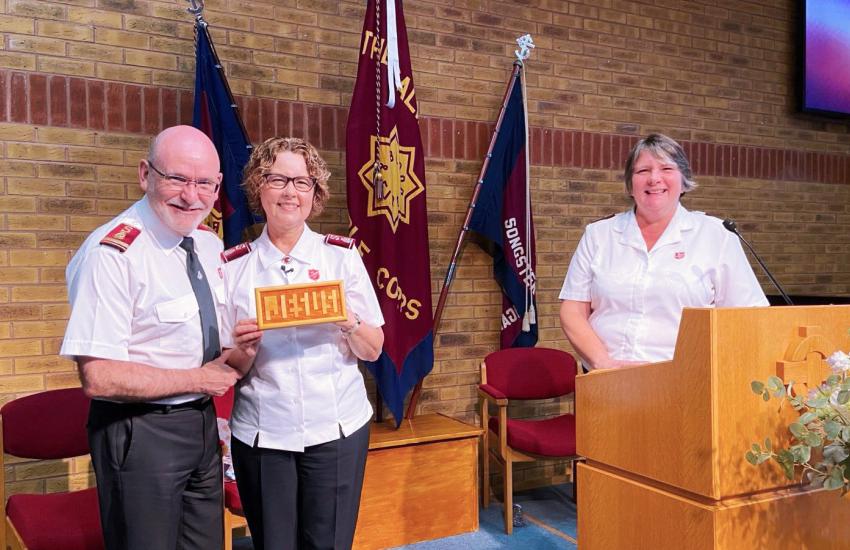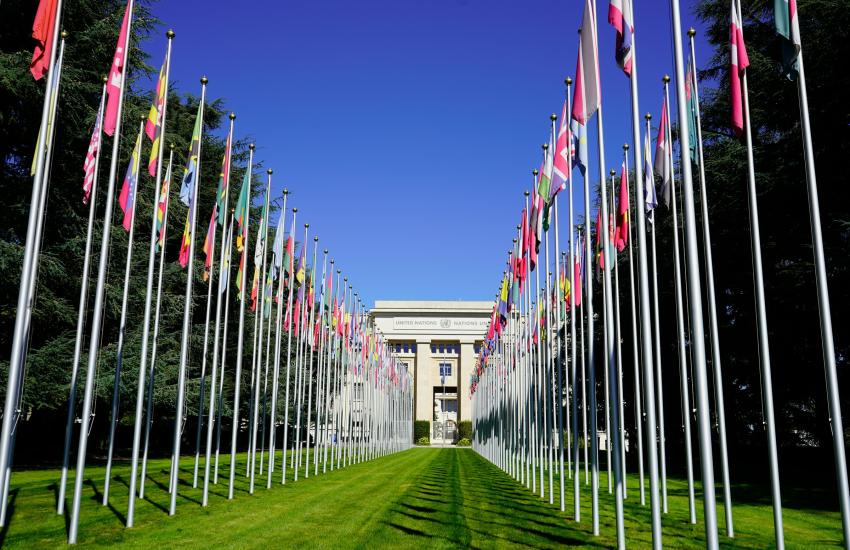Statement of Position
The Salvation Army encourages an alcohol free lifestyle as a way of enhancing the wellbeing and health of all people. As a witness to this, Salvation Army soldiers choose to live an alcohol free life.
The Salvation Army recognises the harm alcohol causes in individuals, families and communities. It advocates for reducing the consumption of alcohol, and it offers its services to support and restore people negatively impacted by alcohol use.
Background and Context
Alcohol is a mind altering substance with sedative effects similar to those of barbiturates. Apart from social effects of use, alcohol intoxication may result in poisoning or even death. Long-term heavy use may result in dependence or in a wide variety of physical and organic mental disorders. Risks associated with alcohol include violence, road traffic accidents and work place injuries.
Many people use alcoholic drinks in a safe and acceptable way but alcohol always has the potential to create harm and dependency.
A major report by the World Health Organization (WHO) in 2014 [1] has recorded the negative impacts of alcohol globally:
- In 2012, about 3.3 million deaths, or 5.9% of all global deaths, were attributable to alcohol consumption.
- 5.1% of the global burden of disease and injury is attributable to alcohol consumption.
- Worldwide, about 16.0% of drinkers engage in heavy episodic drinking.
Around the world, The Salvation Army faces human situations where alcohol is used in excessive or harmful ways. The result of alcohol abuse is destructive to individuals, families and communities.
The international alcohol industry is a multibillion dollar activity.[2] The industry markets alcohol as an attractive and socially useful product. Globally the industry generally fails to acknowledge adequately the dangerous and harmful impact alcohol has on people and communities.
Alcohol plays a central role in the economy of many countries – including agricultural production, manufacturing and marketing of alcohol, the hospitality and leisure sector. Therefore there is an incentive to governments to support the alcohol industry.
Grounds for the position of The Salvation Army
Scripture teaches the human life and the body should be respected in every possible way.
Paul in his letter to the Corinthian church states:
Do you not know that your bodies are temples of the Holy Spirit, who is in you, whom you have received from God? You are not your own; you were bought at a price. Therefore honour God with your bodies’
(1 Cor. 6:19-20 NIV)
Alcohol-free living contributes to health and wellbeing for people.
At the commencement of its mission The Salvation Army immediately confronted human and community damage resulting from the consumption of alcohol. This growing awareness of alcohol harm caused The Salvation Army to require soldiers to abstain from alcohol in the belief that a happy fulfilled life could be achieved without its use. People once lost in a cycle of poverty and drunkenness took the abstinence pledge in earnest—and it transformed their lives. The alcohol-free community of faith they entered was often a key factor in their process of recovery and restoration.
The Salvation Army position on alcohol arises from concern regarding the harmful impact its abuse can have on individuals, families and communities. The Salvation Army is engaged globally with people suffering directly or indirectly as a consequence of alcohol abuse and addiction. In solidarity therefore, soldiers live an alcohol free life.
Although alcohol is enjoyed by many people we believe a reduction of its use is consistent with caring for our neighbour as we care for ourselves (Matthew 22:39). As Christians, we need to take care that the exercise of our freedom does not become a stumbling block to the weak (1 Corinthians 8:9).
Practical Responses
- Globally, The Salvation Army positively promotes an alcohol free way of living.
- Salvation Army soldiers commit to abstain from the use of alcohol. The purpose of this abstention from alcohol is to provide a living example of the positive benefits of an alcohol free lifestyle.
- The Salvation Army will continue and improve prevention and education programmes to help children and adults understand the risks of alcohol.
- Where possible The Salvation Army will assist people who become addicted or are affected by abuse.
- The Salvation Army will encourage national, state and local governments to provide appropriate legislation around the sale, marketing and production of alcohol. Such legislation should take regard of the harm caused to communities families and individuals where alcohol is abused or used excessively.
- The Salvation Army will campaign against alcohol industry practices which could lead to an increase in the consumption of alcohol. For example, pricing mechanisms which increase the cost of alcohol have been shown to be an effective instrument for reducing alcohol consumption.[3]
References
Report Linker. (2014).
Global alcoholic drink market: future trends detailed. Retrieved March 2015, from Report Linker: http://www.reportlinker.com/ci02014/Alcoholic-Drink.html
World Health Organization. (2014).
Global status report on alcohol and health 2014. Retrieved March 2015, from http://apps.who.int/iris/bitstream/10665/112736/1/9789240692763_eng.pdf?ua=1
World Health Organization. (2014).
WHO calls on governments to do more to prevent alcohol-related deaths and diseases. Retrieved March 2015, from World Health Organization: http://www.who.int/mediacentre/news/releases/2014/alcohol-related-deaths-prevention/en/
World Health Organization. (n.d.).
Alcohol Fact Sheet, updated January 2015. Retrieved March 2015, from World Health Organization: http://www.who.int/mediacentre/factsheets/fs349/en/
World Health Organization Regional Office for Europe. (2009).
Evidence for the effectiveness and cost-effectiveness of interventions to reduce alcohol-related harm. Retrieved March 2015, from http://www.euro.who.int/__data/assets/pdf_file/0020/43319/E92823.pdf
Notes
[1] World Health Organization. Global status report on alcohol and health 2014. World Health Organization. WHO calls on governments to do more to prevent alcohol-related deaths and diseases. World Health Organization Alcohol Fact Sheet, updated January 2015.
[2] Report Linker. Global alcoholic drink market: future trends detailed
[3] World Health Organization Regional Office for Europe. Evidence for the effectiveness and cost-effectiveness of interventions to reduce alcohol-related harm.





